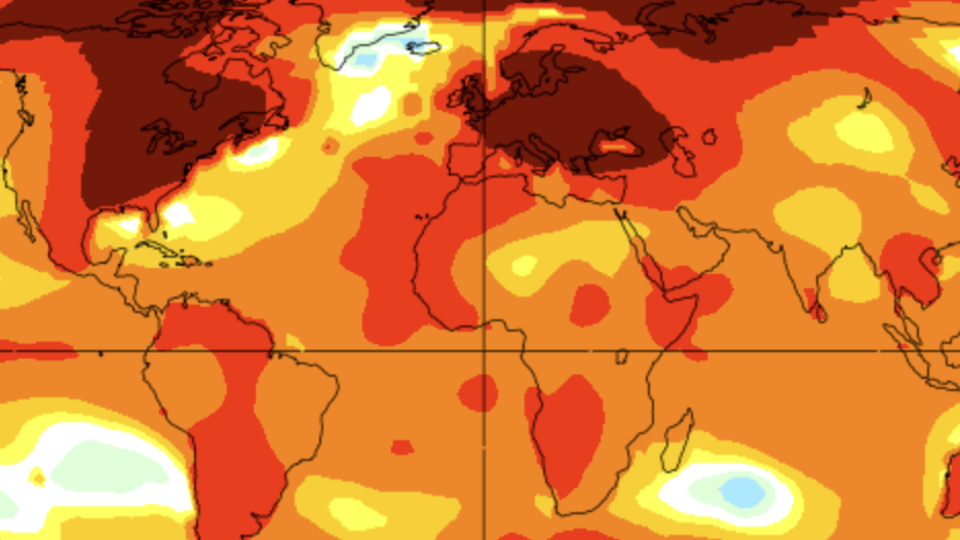30 degrees in April?
Heat weekend: This is how Germany is preparing for record temperatures
A drinking fountain to combat the heat: Because of the hotter summers, there should be more and more measures in major German cities to protect against heat waves
© Paul White / DPA
At the weekend it’s not just supposed to be warm, it’s supposed to be hot – and that in April. For many, the heat can be a problem. Last year, Health Minister Karl Lauterbach announced measures to protect against high temperatures. That’s the state of things.
2023 was the hottest year in Germany since weather records began – and now temperatures are expected to climb to over 30 degrees in April. 2022 was already a record year and experts believe it is possible that 2024 will be even hotter than the previous two years.
Many people suffer from it, sleep poorly, become dehydrated, have circulatory problems or heat strokes. Doing sport is often torture. The heat can also be fatal: According to the Robert Koch Institute (RKI), there were around 3,200 heat-related deaths in the summer of 2023. Politicians came under pressure to act.
Heat is a great danger, especially in old age
Now the next summer is just around the corner – and it poses dangers for many people. According to the Federal Ministry of Health, in addition to infants, small children and people with previous illnesses, people aged 65 and over are particularly affected by the heat.
Anna Brückner from the Federal Association of Senior Citizens’ Organization (BAGSO) can confirm this: “For older people, heat represents a serious health risk. The body can no longer adapt to high temperatures as easily as we get older, especially if there are chronic illnesses.” In addition, the feeling of thirst decreases with age. “Those in need of care who are often unable to help themselves are particularly affected.”
Immediate measures are therefore needed, such as good public communication and help for particularly vulnerable groups. Objects such as mist showers and drinking fountains could also be purchased at relatively short notice and thus contribute to heat protection. But that alone is not enough.
“It is important to address older people and other vulnerable groups directly, for example via a hotline that supports them with information,” says Brückner. In the medium and long term, cities would have to be geared towards heat protection, for example through climate-adapted building and open space planning. “Trees, green spaces and water areas in cities can help reduce overall heat exposure.”
This is the current situation in the German state capitals
Federal Health Minister Karl Lauterbach (SPD) announced last June that he wanted to introduce several measures to combat heat risks. As a result, there was a meeting in November with representatives from the federal government, states, municipalities, self-government partners, associations and civil society, as his ministry announced at the request of the German Press Agency (dpa).
There, existing concepts and resources for heat protection measures were analyzed and concrete goals and measures to improve them were set. The implementation of the plans ultimately lies in the hands of the states and municipalities.
In many cities there are information campaigns via websites, flyers or social media instead of a heat telephone. These include, for example, Stuttgart, Hanover, Munich and Bremen. Stuttgart also has a cooled heat bus. A map is currently being created with an overview of cool places in the city.
There is already one in Hanover, Munich and Düsseldorf, as the cities announced. In Düsseldorf, this shows, among other things, shady green areas, water playgrounds, drinking fountains, refill stations (filling up water bottles), swimming facilities and air-conditioned or cool buildings such as museums, libraries and churches.
Many state capitals such as Hanover, Dresden, Mainz, Erfurt, Bremen, Düsseldorf and Munich are relying on the construction of new drinking water fountains. In Düsseldorf there are mist showers at sporting events, but the cities of Munich, Bremen, Dresden and Kiel want to avoid them due to water waste and poor hygiene.
In Hanover, many facilities also receive financial support so that they can provide homeless people with drinking water, sun protection and hygiene products. Furthermore, homeless people are likely to use tunnel stations for short-term cooling when outside temperatures are high. In Düsseldorf, in addition to drinking fountains, the planning list includes greening the city and shading measures.
Despite all of these measures, the implementation of the heat action plans will still take time in many cities because they are still being developed. According to the social authorities, a heat action plan is currently being developed in Hamburg. Magdeburg, Dresden, Mainz, Wiesbaden, Potsdam and Kiel are also still in the planning phase for most issues.



